Maurice Broaddus's Blog, page 2
November 16, 2020
Afrofuture Friday (A Mo*Con sponsored Saturday edition): A Conversation with Nisi Shawl and K. Tempest Bradford
Join
us for a special Afrofuture Friday (A Mo*Con sponsored Saturday edition) where
we get to talk to two exceptional creators: Nisi Shawl and K. Tempest Bradford.
We’ll be discussing their work as Afrofuturists and their Writing the Other
workshop.
Date: Saturday, November 14th Time: 4:00pm
BIOS
Nisi Shawl, winner of the 2019 Kate Wilhelm Solstice Award, wrote the 2016 Nebula Award finalist Everfair (Tor) and the 2008 Tiptree Award-winning collection Filter House (Aqueduct). Their stories also comprise the contents of PM Press’s 2019 Talk like a Man and Dark Moon’s 2018 Primer to Nisi Shawl, and they have edited and co-edited numerous anthologies such as New Suns: Original Speculative Fiction by People of Color. In 2005 they co-wrote Writing the Other: A Practical Approach. Shawl helped found the Carl Brandon Society, and serves on the board of the Clarion West Writers Workshop. They live in Seattle and take frequent walks with their cat.
K. Tempest Bradford is a science fiction and fantasy writer, writing instructor, media critic, reviewer, and podcaster. Her short fiction has appeared in multiple anthologies and magazines including Strange Horizons, PodCastle, Sunspot Jungle, In the Shadow of the Towers, and many more. She’s the host of ORIGINality, a podcast about the roots of creative genius, and contributes to several more. Her media criticism and reviews can be found on NPR, io9, and in books about Time Lords. When not writing, she teaches classes on writing inclusive fiction through LitReactor and Writing the Other.com. Visit her website at ktempestbradford.com.
RESOURCES
Take a Tour Through the History of Black Science Fiction
A Crash Course in the History of Black Science Fiction
Must Read List Of Speculative Fiction By Writers Of Color
Who Gave You the Right to Tell That Story? Ten authors on the most divisive question in fiction, and the times they wrote outside their own identities.
How Not to Be All About What It’s Not All About: Further Thoughts on Writing About Someone Else’s Culture and Experience
How to Unlearn Everything When it comes to writing the “other,” what questions are we not asking?
Chesya Burke’s story “Say, She Toy”
Tempest Bradford’s “Androids and Allegory”
Nana Nkweti – Walking on Cowrie Shells
The Fourth and Most Important by Nisi Shawl
Afrofuture Fridays brought to you by a partnership with folks we’d like to thank:


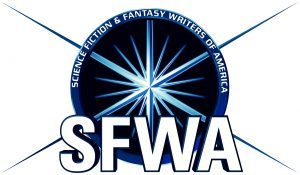
November 13, 2020
Writing from the Center/Writing from the Crossroads
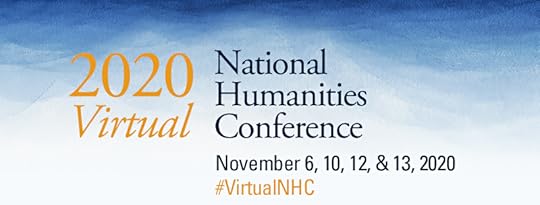
Description: What does it mean to write from the center? In Indianapolis, the Crossroads of America, we’ll consider the many facets of “center:” the position and perspective a writer takes, how place and geography influence written works, and the core self that the writing process engages, to name a few. We’ll also explore “crossroads moments:” the point of no return in a poem, story, or essay, and the lived experiences that may have influenced that moment. This session intends to highlight Indiana writers and writing, offering conference goers an opportunity to interact with practicing writers who are actively writing and participating in literature-based community events throughout Indianapolis and the state of Indiana. The audience will be invited to participate in the conversation, to deepen the connections forged around the idea of “the center.” Panelists: Sarah Layden, Indiana University-Purdue University Indianapolis; Callista Buchen, Franklin College; Maurice Broaddus, independent author; Terry Kirts, Indiana University-Purdue University Indianapolis
Indianapolis
is the place that I’ve called home since I was ten years old. I set most of my
stories here. The theme of identity is common in much of my work and
Indianapolis is where my roots are, my social network, my community, all the
things that are pieces of my identity. So I feel like I am constantly
interrogating the idea of what home means.
A
few years ago, not long after my novella, Buffalo Soldier, sold in 2015,
I began thinking about what I wanted to do with the rest of my life. I was in a
sales job, in my early 40s, but I had given myself permission to dream about
possibilities for my life. I wanted to make a difference. I wanted to make my
community a better place. I wanted to make my world a better place, leave a
legacy worthy of my children.
But
I’m just a writer.
I
was talking about making a major leap from my job to re-create my life with
purpose and intentionality, but the only recent thing on my resume, my main
skillset, was being a writer. I had no idea how to go about leveraging my gift
for the benefit of community, no idea what a possible job or future could look like—and
mind you, none of this process made my wife, mother of my two children, nervous
at all—so I did what I always do when I’m unsure about things.
I
wrote.
The
Learning Tree – learn your neighbors
At
the same time, I was looking at what kind of art-based work was going on in my
community. a journey that first landed me with the
grassroots organization, The Learning Tree. The Learning Tree has been doing
community building work in the United Northwest Area (UNWA) neighborhood since
2010. When I joined in 2016, one of the projects we did was called the Portfolios
of Joy. I would go and learn the gifts and talents of the neighbors. What were
they passionate about? What moved them to get out of bed in the morning? What
skills could they teach to someone else in the community? And I would talk to other neighbors to see how
they saw each other. When I was done, I would compile the stories of the
neighbors.
We
were gearing up for Open Bite Nite II. Open Bite Night launched from the porch of one of our
neighbors, my sister as a matter of fact, to encourage local businesses and
artists. It came in the wake of a spate of police violence toward the African
American community. The event proved to be a healing one, allowing residents to
grieve and protest while celebrating community. For Open Bite Nite II, we were
setting up an open-air gallery of art. You see, 25 doors had been dumped in an
alley in the neighborhood, a perfect metaphor of how the neighborhood was seen
from the outside: someone in the city decided we were no longer useful or had
any value so we’d been discarded and left to be forgotten. One of our artist
neighbors came up with the idea to have the artists in our community paint
their stories on the doors. While some of our neighbors working on setting up
the art display, I passed out the Portfolios of Joy.
Well, they read their stories on the spot (nothing is more
nerve-wracking for a writer than having people read your work in front of you,
because you’re going to be looking for that immediate feedback). I waited. And
waited. And waited. Wanting to see their reaction. But then they started
swapping the stories with each other like they were collector cards. Asking
each other “is this who I am?” “Is this how I’m seen?” Why? Because our culture
doesn’t often see us for who we are. We’re labeled, we’re discounted, we’re
invisible. Unless some aspect of the system needs someone to blame. But to have
who you are, the blessing of what you bring to the community, reflected back at
you, it can be life affirming. That’s the power of stories.
The Kheprw Institute – Resident Afrofuturist
I
moved on to work with the Kheprw Institute. KI is a nonprofit organization
focused on empowering youth and building community wealth in Indianapolis since
2003. I’m their resident Afrofuturist. Many organizations have futurists on
staff, people using their vision and skillset to consider new alternatives or
be a guide to navigate current circumstances. Futurists by definition look for
new ways of examining our society, technology, and the world to extrapolate and
create blueprints and roadmaps to innovate tomorrow.
With
an Afrofuturist lens, however, that visioning is rooted in black history and
culture to create a vivid picture of what the world could look like.
For
KI, a resident Afrofuturist represents a public statement of the attitude and
mindset of the organization and community, about creating desired future states
in the present by constantly re-imagining the work and the way the community
moves through the world.
We
live in a culture that doesn’t value imagining as a skillset. But we also live
in the midst of collapsing systems that are past reforming and require radical
re-imagining.
By
strange coincidence, I just had a story published a couple days ago. “The
Legacy of Alexandria” in Apex Magazine. It’s about a community organization
full of books used to train up future leaders (in a near apocalyptic version of
Indianapolis). Basically, a story about finding resilience, purpose, and identity
through the power of books. The power of stories.
My
Work
Part
of my work involves hidden worlds. With Knights of Breton Court, I
retold the legend of King Arthur through eyes of homeless teenagers, set here
in Indianapolis. I had been working as a volunteer at the homeless teen
ministry, Outreach Inc, at the time. I used magic as metaphor for homelessness.
Again, with the idea of making the unseen seen.
I
also love secret history, the hidden stories. I returned to the world of a
short story I’d written a decade ago, “Pimp My Airship.” I wanted to tell the
story particularly through the eyes of a poet named Sleepy. I wanted to work
some things out in my head about what it means to leverage your gift, your art,
for change in the community.
Sleepy’s
journey started in a spot where he was comfortable in life. Had a 9-5, his bills
paid, and he could do a little thing of his own at night at a poetry spot. You
know, life was comfortable. That “I gots mine” mentality.
Only
to have his world intruded upon and expanded by the reality of the systems that
control the pillars of his world:
-redlining
-over-policing
-predatory capitalism
-poverty criminalized
-mass incarceration
Using
the trappings of the subgenre steampunk allowed me to tell this story within
the context of turn of the century Indianapolis in order to add the weight of
history to the lens of viewing those issues.
-Being
opened up to the reality that the world is bigger than “the I”—that there’s in
fact a “we,” your community—that puts “the I” in context. A greater story that
puts your story in context.
-What
it means to examine your gifts, use them to find and define your voice, and
organize into a chorus of voices that can leverage change. To learn the stories
of your neighbors and join them into a force.
Conclusion
The power of story. Now you have to understand that I write for me. But part of me writing for me is telling the stories of and within my community. My community work informs my writing and my writing informs my community work. That’s what writing from the center looks like for me.
November 12, 2020
Re-Group – 11/11/20 (w/ Anna Powell Denton)
You are an entrepreneur with Anna Powell Denton
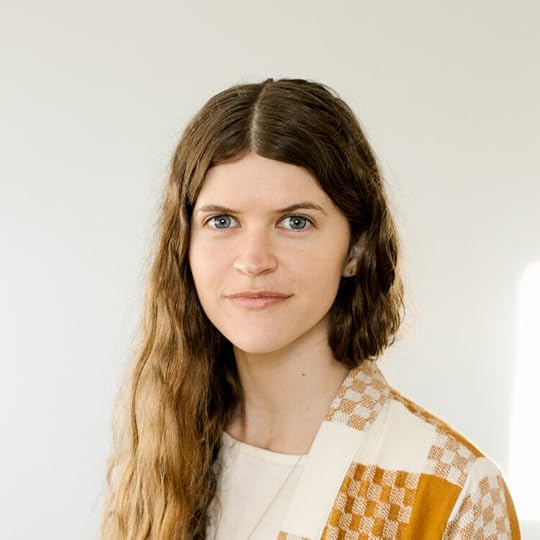
Are you a hustler? Is your creative practice a business? Should it be? Anna’s answers to these questions keep her creative life nimble and thriving even in uncertainty.
– Redefining yourself: how do you promote yourself to create the work you want to do?
-How do you define entrepreneurship for yourself? What are the qualities you could build something with?
Anna Powell Denton is a photographer and filmmaker based in Bloomington, Indiana. She works with both digital and film formats specializing in editorial portraiture and documentary photography.
“The Legacy of Alexandria” in Apex Magazine
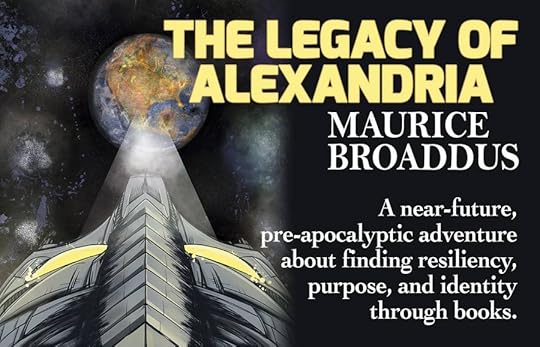
In what be my last story for Apex Magazine for awhile (since I’m not its special fiction editor), my story “The Legacy of Alexandria” appears in the promotional mini-issue of Apex’s return from hiatus.
The Library of Alexandria
Rahim dragged a shopping cart of his belongings along the cracked sidewalk. With the highways flooded, he followed the dense foliage lining the creek which wouldn’t be much cover for him much longer if he were intent on making his way deeper into the neighborhood. If it were night, he’d be following the drinking gourd, finding the brightest jewel in the sky and following its direction. By some movement stirring his spirit he couldn’t explain, he just knew it was the right way.
November 11, 2020
“City of Refuge” in Escape Pod: The Science Fiction Anthology
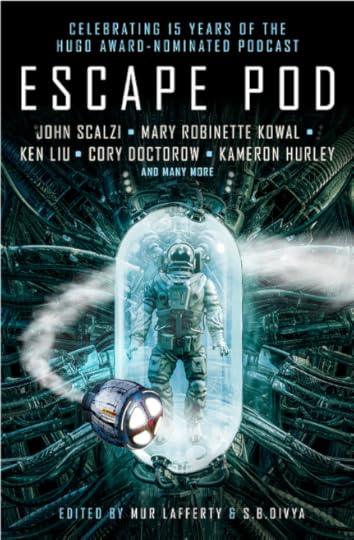
The fifteenth anniversary of the Hugo-nominated science fiction podcast Escape Pod, featuring new and exclusive stories from today’s bestselling writers.
Celebrate the fifteenth anniversary of cutting-edge science fiction from the hit podcast, Escape Pod. Escape Pod has been bringing the finest short fiction to millions of ears all over the world, at the forefront of a new fiction revolution.
This anthology gathers together fifteen stories, including new and exclusive work from writers such as from Cory Doctorow, Ken Liu, Mary Robinette Kowal, T. Kingfisher and more (including ME!). From editors Mur Laffterty and S.B. Divya comes the science fiction collection of the year, bringing together bestselling authors in celebration of the publishing phenomenon that is, Escape Pod.
City of Refuge by Maurice Broaddus
Hope was a fickle bitch. Mercurial and quixotic, the kind of woman you spent the whole week getting ready for only to have her cancel the date at the last minute.
The world was ending, but Royal Parker still had to go through the motions of a job interview. He knew as soon as he sat down across from the manager—in his ridiculous red and white striped shirt and paper hat—that he wasn’t getting the job. Despite the assurances from the Liberation Investment Support Cooperative, the corporate entity controlling the state’s infrastructure, jobs were scarce. He hated that even part of him wanted this person’s approval, that this idiot pretending to have authority held the keys of opportunity. Still, Royal tried to do all the things his counselors recommended. He shook the manager’s hand, his large, meaty hand engulfing it like a shark devouring tuna. Royal attempted to shrink into his seat to hide his hulking build, a man used to many hours a day lifting weights. As the manager bridged his fingers in front of him, Royal could see him assuming what his story was without so much of a glance at his resume dancing before him as a series of holographic projections. He’d taken note of Royal’s cautious shamble, his one eye constantly on alert over his shoulder; his cornrows, nice and neat, revealing the barest hint of gray budding at his temples. He’d always wanted to wear a linen suit for as long as he could remember. When he was inside, such a suit had the feel of reaching for something he couldn’t attain. Not that things were much different now. Sitting up straight as to not cause a crease in it, Royal smiled his best, safe, toothy grin.
November 3, 2020
[PATREON] OCTOBER AND NOVEMBER ROUND UP
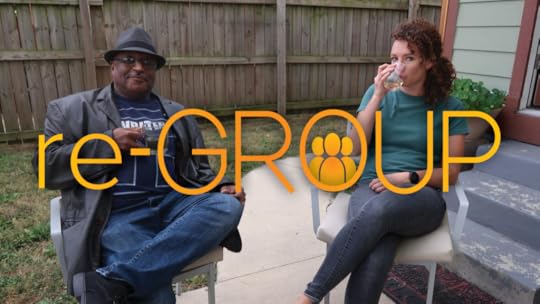
Well panel season is just about over. In the last couple weeks alone I did:
Future Telling: Past, Present, (Afro)Futurism Podcast
Multiverse Convention 2020 (Virtual)
Science Fiction and Christian Hope Panel (Upper House)
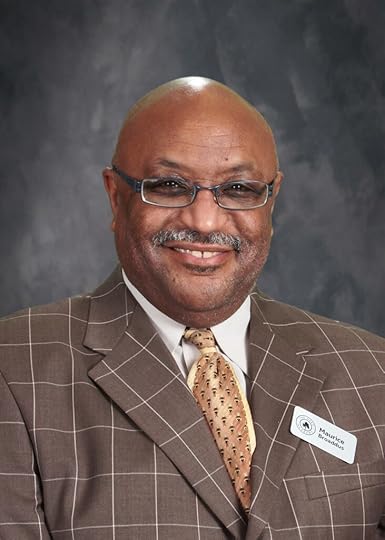 This year’s official school photo aka Mr. Broaddus 2020
This year’s official school photo aka Mr. Broaddus 2020And I sold a couple of short stories which I am quite pleased about (look, I never take story sales for granted and these were pieces I am quite proud of so I’m excited that they found good homes).
With that in mind, I really appreciate the support to my Patreon, which helps me continue to be active in the community. With that in mind, these months (since I was apparently slacking last month and didn’t do a round up) we look at:
-[AWESOME PICS]: with a Broaddus family photo shoot (and a return to pics of Ferb, since that’s who you all really want to see)
-[AWESOME BLOG]: some thoughts on social media privacy and lessons learned along the way to a debut novel
[BONUS AWESOME BLOG POST] My First Halloween aka Why I’m Not a Halloween Guy – a public post. Enjoy!
-[AWESOME PIMPING]: “The Mis-Education of Kurt Vonnegut” (a lost essay/story) and a peek at my upcoming middle grade novel, Unfadeable.
-[AWESOME COMMUNITY]: an update on the latest goings on in the community, plus a focus on our RE-GROUP project.
As always, I appreciate your support of my Patreon. Words cannot express how encouraging it is, especially during these dark times. I really appreciate it…and each and every one of you. Thank you!
I launched a Patreon because some friends wanted a way to help support the work that I do in the community. If you would like to support it (and receive updates on the work that’s being done) please feel free to join. Thank you so much!
Become a Patron!
October 28, 2020
Re-Group – 10/28/20 (w/ Diop Adisa)

TONIGHT (10/27/2020) AT 7 P.M. EASTERN TIME
HOW TO STOP LIVING IN SCARCITY WITH DIOP
Why are finances so difficult? Maybe money will never be enough. Maybe our economy is a complete illusion. How would life be different if money didn’t exist? If you’re feeling like resources are scarce, let Diop introduce you to community wealth. This conversation is perfect for both your anti-establishment friends and your those with stocks and bonds. Let’s find abundance.
ABOUT DIOP
Diop Adisa was born and raised in Indianapolis, Indiana. He attended Broad Ripple high school and IUPUI. He has been with the grassroots community organization Kheprw Institute (KI) since inception back in 2003. To describe him simply, he’s an artist, activist and entrepreneur. He’s also an independent hip hop artist who has worked within the Indianapolis hip hop community for the past 15 years.
“Abundance is tied to creative energy, and nothing is out of reach,”Diop Adisa shared last night in Re-Group: Virtual Working Group for Creatives.
These ideas are great, but how will you make them happen in your own life and practice?
Keep talking. Comment below on your questions or “aha” moments. Let’s learn together!Keep reading. Here are a few places to start: “What is Money? Jacob Goldstein’s Book Explains ‘Shared Fiction’” (NPR, 2020); Proposals for the Feminine Economy, Jennifer ArmbrustAsk a mentor to help you see what you are attracting to yourself.Reflect: How do you attract what you need to yourself? Where does the scarcity-reality or scarcity-mindset show up strongest in your life?Explore alternatives to our current economy, like Timebanking or the Buy Nothing Project
October 26, 2020
Re-Group
Join me and my co-host, Anna Tragesser, in a virtual community of creatives figuring out life and work beyond COVID.
Focus on your vision and creative career for 2020 and beyond while stretching your understanding of what’s possible in the creative economy.
Last week, we gathered with Maurice Broaddus to talk about longevity. After his entire life collapsed, author Maurice Broaddus rebuilt it to fuel his creativity, family and community. He’s thriving today (yes, even during a pandemic!) because he’s designed his future, and refuses to settle for anything less. Maurice will share his trusty tools for decision-making and future-building.
“Homework” assignments and prompts from this session:
1. Make your own Matrix for Opportunities
2. Write your own obituary.
3. Use these questions to journal about trusting yourself.
Which has more weight in my decision-making: my intellect or my intuition?How often do I follow my instincts?Do I regularly look to others for answers?What does my intuition feel like? Where do I feel it in my body?How would my life change if I trusted myself more deeply?ACTION: What decision is right in front of me?
Get to Know 2020 Genre Winner Maurice Broaddus
#FridayFeature! This week, get to know 2020 genre winner, @MauriceBroaddus.
— Indiana Authors Awards (@INAuthorsAwards) October 16, 2020
Watch this video to learn more about what inspires him and how he feels like he cheated the system. pic.twitter.com/Jas3myZhCc
October 21, 2020
Science Fiction and Christian Hope Panel (Upper House)
Ralph Waldo Emerson wrote that fiction reveals the truth that reality obscures. This is nowhere more evident than in science fiction, where depictions of the future are rooted in the real concerns of the present and reveal otherwise difficult truths about our world through the fantastical.
American Christians have often ignored or dismissed science fiction as irrelevant to a vibrant Christian imagination, even as well-respected Christian writers such as C.S. Lewis and Madeleine L’Engle wrote, and write, in the genre. For both Lewis and L’Engle, as well as Christian writers today, science fiction is a uniquely suited medium to depict Christian understandings of sin, redemption, and hope; the problems of the present world; and the Bible’s arc toward justice.
READ: Maurice Broaddus and LaShawn Wanak bring some real…
#afrofuturism #afropessimism #hope



